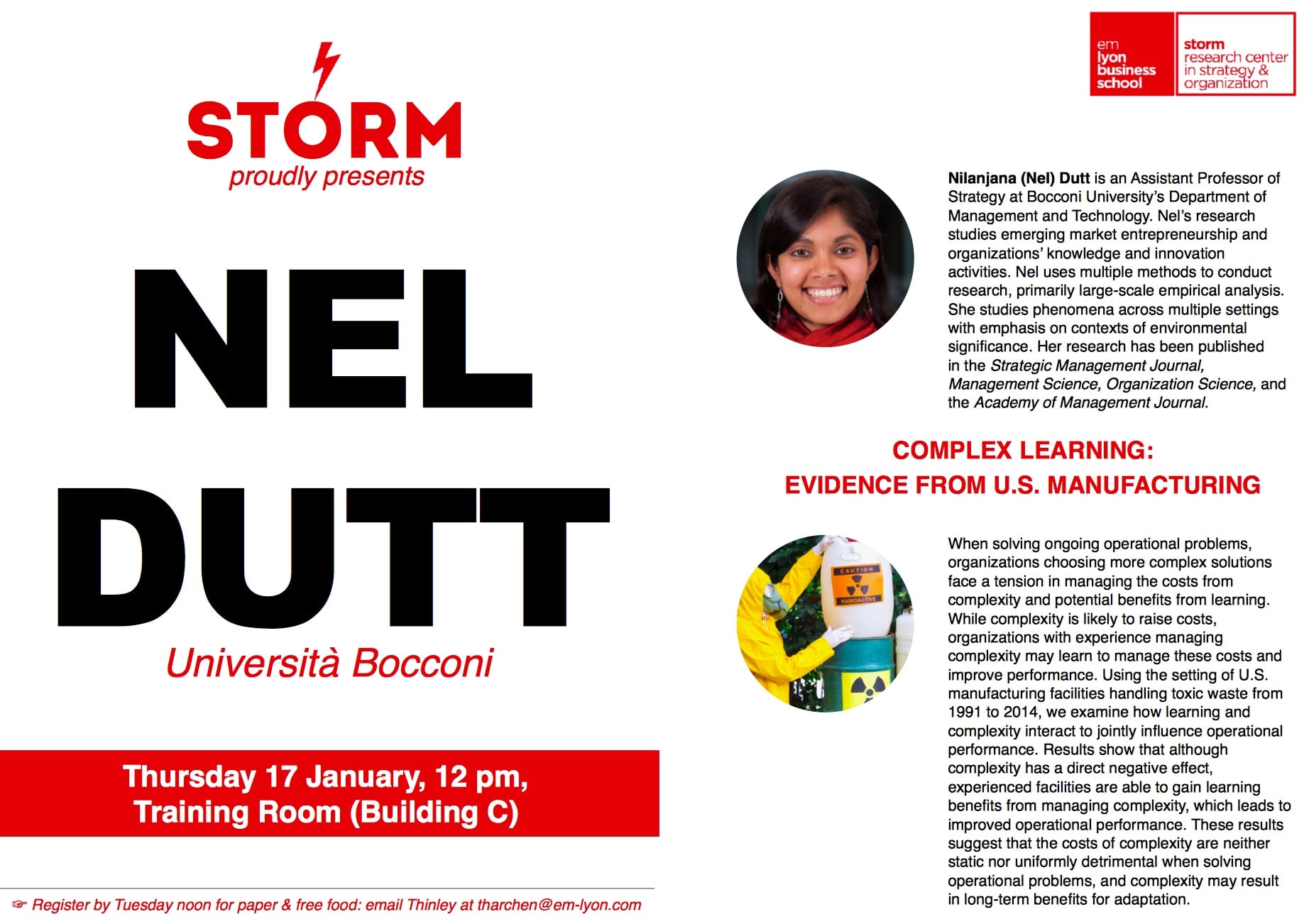Complex Learning: Evidence from U.S. Manufacturing
When solving ongoing operational problems, organizations choosing more complex solutions face a tension in managing the costs from complexity and potential benefits from learning. While complexity is likely to raise costs, organizations with experience managing complexity may learn to manage these costs and improve performance. Using the setting of U.S. manufacturing facilities handling toxic waste from 1991 to 2014, we examine how learning and complexity interact to jointly influence operational performance. Results show that although complexity has a direct negative effect, experienced facilities are able to gain learning benefits from managing complexity, which leads to improved operational performance. These results suggest that the costs of complexity are neither static nor uniformly detrimental when solving operational problems, and complexity may result in long-term benefits for adaptation.
Don’t miss Nel’s interview, by our fabulous PhDs
Interview by emlyon Ph.D. candidate Muhammad Imran. Editing by emlyon Ph.D. candidate Muhammad ImranSTORM post-doc Thinley Tharchen.


